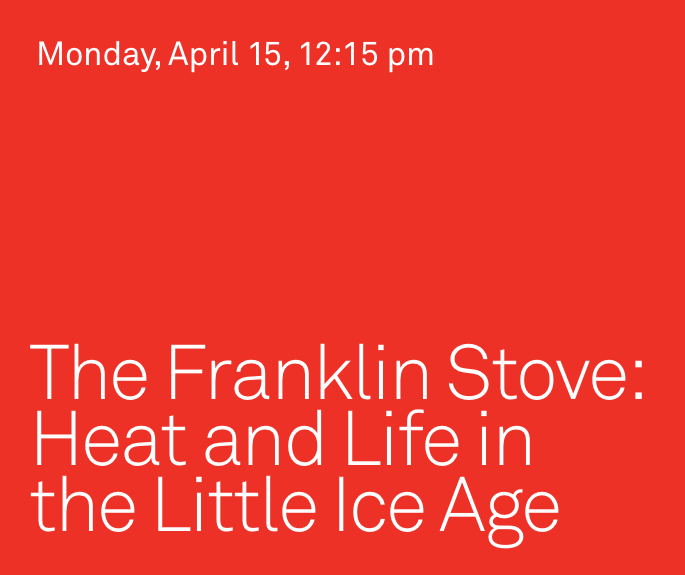|
|

|
|
|
Joyce E. Chaplin
James Duncan Phillips Professor of Early American History, Harvard University
Joyce Chaplin’s current research examines climate change and climate science in eighteenth-century early America, focusing on awareness of and responses to the little ice age. The invention and circulation of the Franklin stove is the central example of her study. Climate history is an important new subject for historians, given that public debates over climate and resource scarcity have become urgent. Belief that our dilemma is unprecedented is inaccurate and unhelpful, perhaps especially within the United States. Climate-change mitigation existed in the past and analysis of it reveals useful patterns of success and failure. Early American history has tended to emphasize non-environmental themes and events—especially the American Revolution as national pivot. But this history of politics, of human-to-human relations, was always entangled in human use and knowledge of the natural world. Early Americans themselves knew this. Benjamin Franklin knew he was living in an age of climate change, in response to which he designed a heating system and articulated a climate science. Both are significant. Franklin’s proposals about maximizing the production of heat from a minimal quantity of fuel were widely translated and discussed—they were profound Enlightenment-era statements about settler colonialism, resource conservation, and climate change.
Monday, April 15, 12:15–1:15 pm
38 West 86th Street, Lecture Hall
RSVP: academicevents@bgc.bard.edu
|
|
|
|
Joyce E. Chaplin (BA Northwestern; MA and PhD, Johns Hopkins) is the James Duncan Phillips Professor of Early American History at Harvard University. A former Fulbright Scholar to the United Kingdom, she has taught at six universities on two continents, a peninsula, and an island, and in a maritime studies program on the Atlantic Ocean. Her most recent works include Round about the Earth: Circumnavigation from Magellan to Orbit (Simon & Schuster, 2012) and (with Alison Bashford) The New Worlds of Thomas Robert Malthus: Rereading the Principle of Population (Princeton University Press, 2016). She is the editor of Benjamin Franklin’s Autobiography: A Norton Critical Edition (Norton, 2012) and Thomas Robert Malthus, An Essay on the Principle of Population: A Norton Critical Edition (Norton, 2017). Her reviews and essays have appeared in the Times Literary Supplement, the New York Times Book Review, and the London Review of Books. Her work has been translated into French, Japanese, Korean, Portuguese, Estonian, and, forthcoming, into Turkish and Chinese. She is a current Guggenheim Fellow and tweets @JoyceChaplin1.
|
|
The MA Student Brown Bag Lunch series is an annual invitation extended by the graduating MA class to a speaker of their choosing.
|
|
COPY AND PASTE CODE BELOW TO MAILCHIMP
|